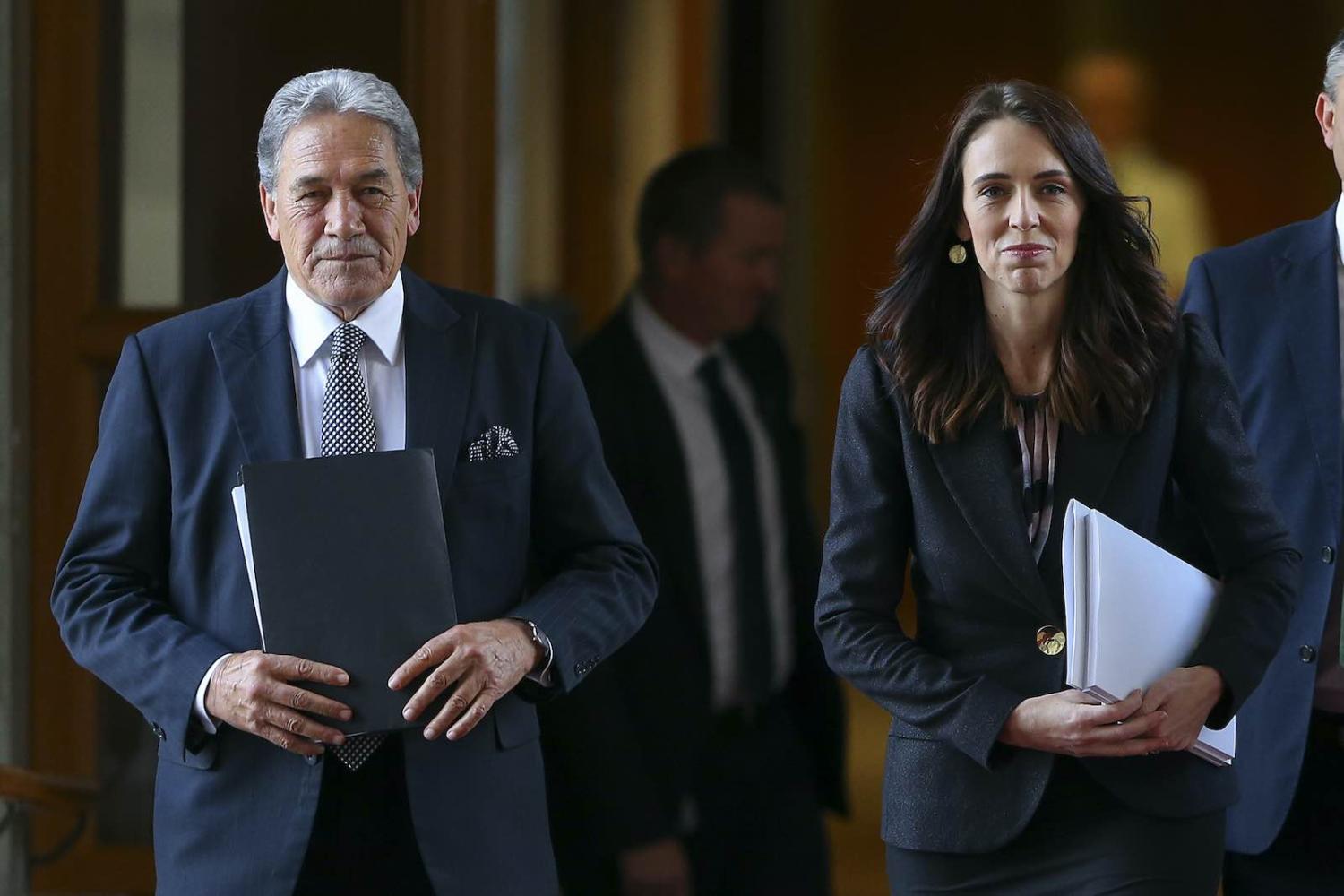The Department of Foreign Affairs and Trade describes Australia and New Zealand as “natural allies with a strong trans-Tasman sense of family”. New Zealand claims it has “no better friend than Australia”. But differing approaches to their relations with China have been a point of divergence.
This was illustrated in April 2018, when rumours surfaced that China was in talks to build a military base in Vanuatu. While unwilling to single out China, Australia’s then–prime minister Malcolm Turnbull emphatically stated that his government “would view with great concern the establishment of any foreign military bases in those Pacific Island countries and neighbours of ours”. In contrast, New Zealand Prime Minister Jacinda Ardern made the more neutral observation that “New Zealand is opposed to militarisation of the Pacific” (a phrasing echoed by New Zealand Foreign Minister Winston Peters).
Since then, encouraged by the more confrontational stance adopted by the United States, Australian leaders have hardened their rhetoric about China. Prime Minister Scott Morrison has begun to argue that “China has in many ways changed the world, so we would expect the terms of its engagement to change too”. Defence Minister Linda Reynolds has observed that “Australia is focused on ensuring that China’s engagement – like any other country’s – augments, not hinders, those [international] institutions’ ability to operate as fora for equitable decision-making with tangible, positive impacts”.
Until now, New Zealand’s leaders have publicly continued to maintain a softer rhetorical approach to China. This changed in a recent interview with Australia’s Nine newspapers, in which Peters expressed particular concern that, “If we [Australia and New Zealand] don’t do the right thing, the best thing, in our neighbourhood, then other countries with less understanding or less sympathy for democracy, freedom, a different way of life – those countries will enter the arena, and that will be adverse to our interests”. While Peters did not specifically name China, given the mounting concerns about China’s increased presence in the Pacific expressed in the Australian (and US) media and commentary, it is likely that he was echoing these concerns. This also reflects a hardening of views on China in some of New Zealand’s foreign affairs and security agencies.

Peters’ comments were significant because there has been a perception in Australia that New Zealand has been less assertive in its relationship with China than Australia (and its ally, the US). In 2018, New Zealand was caricatured during a workshop organised by the Canadian Security Intelligence Service as the “soft underbelly” of the Five Eyes intelligence-sharing partnership. However, that year New Zealand released its Strategic Defence Policy Statement which stated that China “has not consistently adopted the governance and values championed by the order’s traditional leaders” and “holds views … that stand in contrast to those that prevail in New Zealand”. Peters’ comments will hearten its Australian ally.
Those remarks, made only a fortnight before New Zealand’s general election, also have domestic undertones. Peters has publicly taken a stronger stance on China than Ardern’s more cautious tightrope act, in which she has recalibrated New Zealand’s approach to both Beijing and Washington, allowing for what one observer described as a “middle ground where it can be critical when its values demand, but without hurting its economic interests”.
While working together will be important, if Australia and New Zealand want to advance their defence and security interests in the Pacific, listening to Pacific states themselves will prove to be critical.
Peters has concluded that “it’s simply common sense that we [Australia and New Zealand] should stay in close contact with [Pacific Island] neighbours because our defence and security depends upon it”. This is true. But by swinging closer to Australia’s more hawkish, securitised view of the region, particularly of the perceived risks of growing Chinese presence, New Zealand is presented with a distinct challenge.
How does Wellington balance two – at times contradictory – objectives: its Pacific relationships which are tied to New Zealand’s identity and domestic policy, and its alliance with Canberra, including the associated asks which at times compete with Pacific concerns about the securitisation and militarisation of the region?
These challenges are likely to become even more acute for New Zealand’s next government. Although domestic concerns have dominated election debates, while foreign policy issues, including China and the Pacific, have barely received a mention, the government elected on 17 October will have to navigate increasingly crowded and complex waters. It is unlikely, however, that New Zealand’s Pacific policy will shift dramatically. The Pacific Reset, supported by an increasingly powerful “Pasifika” constituency (New Zealanders of Pacific descent), has significant political currency both domestically and abroad. How New Zealand and Australia deepen their engagement will be subject to discussions at this year’s Australia–New Zealand–US Pacific Security Cooperation Dialogue, which New Zealand will host virtually this year.
Ultimately, while working together will be important, if Australia and New Zealand want to advance their defence and security interests in the Pacific, listening to Pacific states themselves will prove to be critical. While the New Zealand kiwis may be taking a more hawk-like stance on China, mirroring and mollifying Australia, Pacific states are responding to strategic competition in the region by engaging in foreign policies which reflect complexity and agency, combining both national and regional interests. Wellington and Canberra – and other capitals, including Washington, Beijing, Taipei and Tokyo – would do well to heed this shift.

